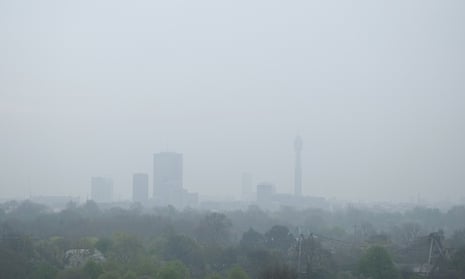The world is starting to realise that fossil fuels are not cheap. It is increasingly clear that oil, coal and gas have huge hidden costs that are omitted from prices, and they are therefore heavily subsidised.
The latest evidence about how expensive fossil fuels really are has been provided this week by the International Monetary Fund (IMF), an organisation that monitors the progress of the world’s economy. It estimates that oil, coal and gas will receive US$5.3tn in subsidies this year around the world. That is the equivalent of 6.3% of global GDP. The IMF correctly argues that the damages and costs caused by fossil fuels, through impacts such as air pollution, congestion, traffic accidents and climate change, should be treated as subsidies if they are not included in the prices paid for oil, coal and gas.
The increase from previous estimates is due to a number of factors, particularly a deepening understanding of the immense costs of air pollution. The unpriced costs of fossil fuels are in addition to, and much greater than, the direct financial support for fossil fuels through, for instance, tax breaks for oil and gas exploration and subsidies for consumers. The IMF points out that coal receives the biggest subsidies worldwide, and has the largest negative impact on human health through the pollution that it causes.
While the IMF’s figures are eyewateringly large, they are, if anything, conservative because they are based on low estimates of the costs of climate change from the US government, which tends to omit many of the largest risks. While the IMF offers a regional breakdown, there are no figures for individual countries. However, there is much evidence that the subsidies in the UK are large, as air pollution from use of fossil fuels has an enormous impact.
In its ruling last month that the UK government must submit new air quality plans to the European Commission by the end of the year, the supreme court recognised that microscopic particles produced by the burning of diesel and other sources are responsible for the equivalent of 29,000 premature deaths each year in Britain, more than 10 times the number of fatalities from road accidents.
So the costs of fossil fuels are paid through the death and illness of present and future generations. That is why it is so important to create a level playing field for alternative energy sources and help to propel our economies away from their dependence on dirty and expensive fossil fuels.
To achieve this, direct subsidies for the production and consumption of oil, coal and gas must end, as the G20 group of countries with the largest economies have made clear at their last few annual summits. But governments must also start to implement policies that properly price in the hidden costs of fossil fuels.
With oil prices currently at a low level, now would be the ideal time to introduce levies that remove the implicit subsidy for pollution from petrol and diesel. The revenue from these levies could more than compensate the poorer members of the community for the price increases, give a boost to research and innovation, and contribute to the cleaner and more attractive investments that we need.
This will also help to encourage the development of public transport, much of it electric, and better planning for our cities, so that they are less polluted and congested.
This is what a low-carbon transition means for the world, and it could unleash a period of innovation and creativity that would drive prosperity and growth in rich and poor countries alike.
